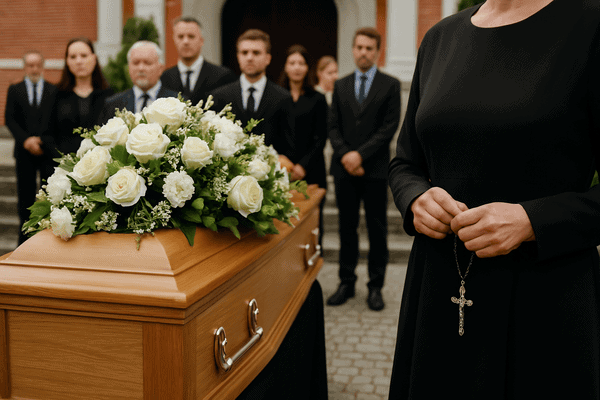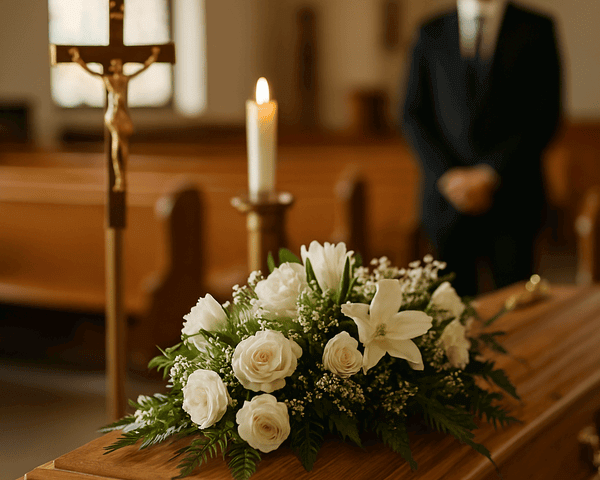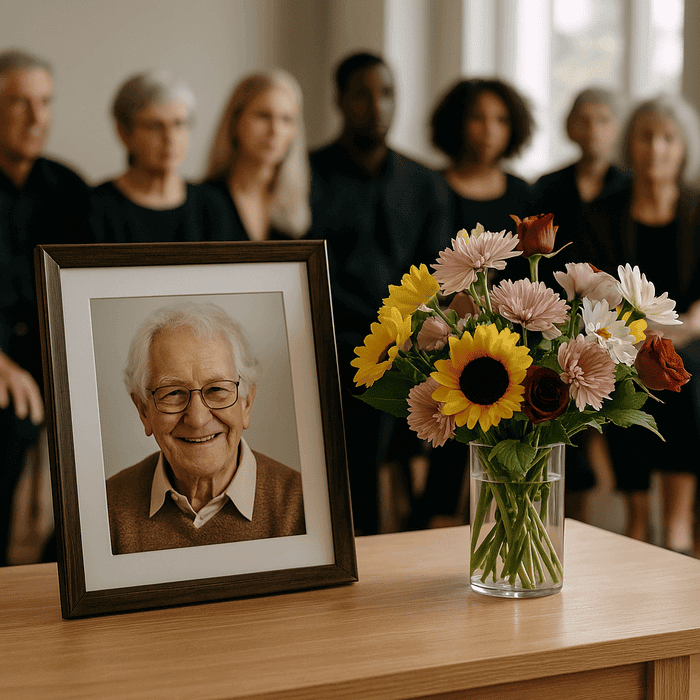Types of Funeral Services: Traditional Funeral Services

Protestant Funeral Services
March 24, 2025
Types of Funeral Services: Direct Cremation
April 11, 2025Funeral planning can be overwhelming, especially when handling the variety of services. Conventional funeral services remain one of the most sought-after options and are defined by their structured and tried-and-true method. Understanding what a traditional funeral entails assists families in making informed decisions in an otherwise difficult time.
Traditional funeral ceremonies are of significant religious and cultural significance, and they serve as a way of celebrating the memory and life of a loved individual. A chain of events, including visitation, funeral service, burial, and reception, characterizes the kind of ceremony. These elements serve as consolation, offering a venue for friends and family members to grieve, reminisce, and console one another.
The knowledge of the basics of traditional funeral services allows for individuals to make decisions which accurately reflect their own values and heed the deceased’s preference. Being aware of the customs and practices in play, families can more effectively handle the planning process and have the service honor their loved one’s memory.
What Are Traditional Funeral Services?
Traditional funeral procedures adhere to a traditional method founded on age-old traditions. In most cases, it entails viewing or visitation, a solemn ceremony and burial. Very often, the reception allows room for family and friends to congregate later, reminiscing about memories, as well as offering condolences.
One of the defining features of traditional funerals is their emphasis on ritual dependent on religious or cultural beliefs. Whatever the location, whether a funeral home, place of worship, or graveside, the services may include eulogies, prayer, music, and other elements reflective of the life and faith of the deceased.
Traditional funeral ceremonies honor the life of the deceased and provide a supportive setting for those left behind. They produce a meaningful moment to say goodbye, creating a sense of closure and social support.
Why Choose Traditional Funeral Services?
Traditional funeral services provide emotional and social advantages that appeal to many families. They provide a formal setting where mourners can come together, providing comfort and support to each other. By adhering to established customs, traditional funerals assist attendees in processing grief within a known framework.
Maintaining traditions and rituals at a funeral allows families to pay tribute to their heritage and religion. Whether religious or cultural, they assist in affirming the bond between generations that lived before and the present. For others, being involved in tried and tested practices gives them a sense of continuity, which facilitates the transition after bereavement.
Choosing a traditional funeral service can also respect the will of the departed, particularly where they had the preference for keeping long-standing practices. It leaves room for introspection, relating, and ending.

Costs Associated with Traditional Funerals
Understand the cost of a traditional funeral so the family will know how to plan. Typical costs are usually the casket, embalming, the use of a space, transportation, and grave or crematory fees. Additional items, such as flowers, programs, and catering for the reception, will add to the cost.
Caskets typically comprise a significant percentage of the expense. Embalming and body preparation add to the cost, especially if the affair is to have an open-casket viewing. Leasing the facility, either funeral parlor or place of worship, depends on location and available amenities.
Cost considerations include the funeral location, casket choice, and the individual services of the funeral director. Pre-arranged funeral packages may sometimes reduce expenses by bundling services. Families must sit down with the funeral home to discuss their budget and desires in order to make informed decisions.
Alternatives to Traditional Funeral Services
Most families find alternatives to the traditional funeral service when they want more personalized or less costly options. Cremation, memorial services, and direct burial are some of the most common alternatives. Each one has different advantages and can be more sensitive to personal or cultural variations.
Cremation tends to be less costly than an ordinary burial and is more adaptable in memorialization planning. Families may choose to have a service before or after cremation, with more time to bring out-of-town relatives.
Memorial services offer the less formalized format, typically being performed without the body. This makes it feasible for creative expressions of tribute and with fewer formal structures. Direct burial eliminates the formal ceremony altogether, focusing solely on the burial, and is typically the most economical.
Choosing an alternative funeral service depends on factors like budget, family preferences, and cultural values. Exploring each option helps families find an approach that feels most fitting.


